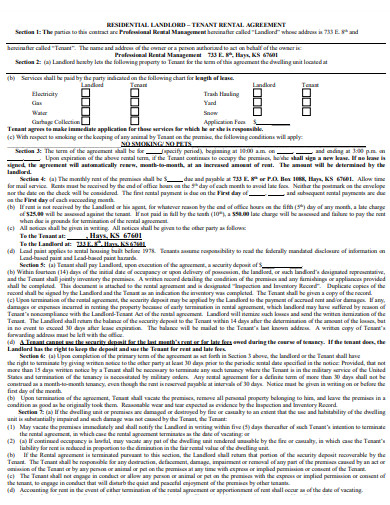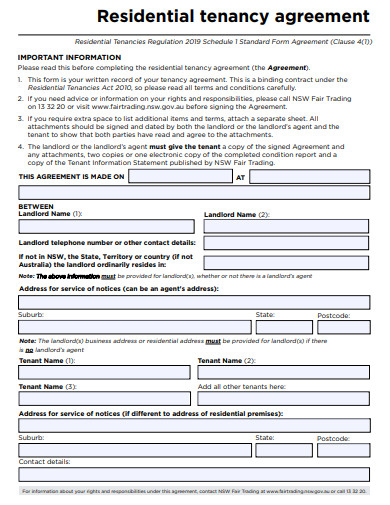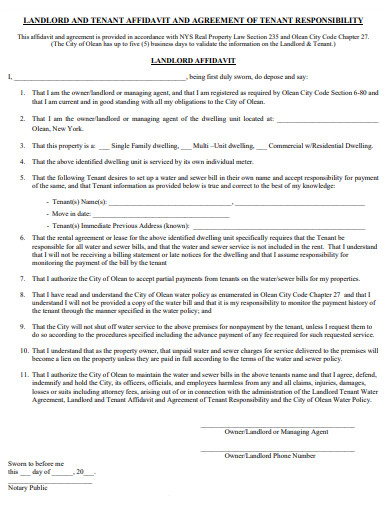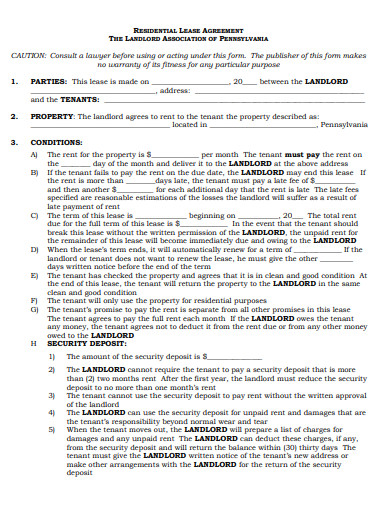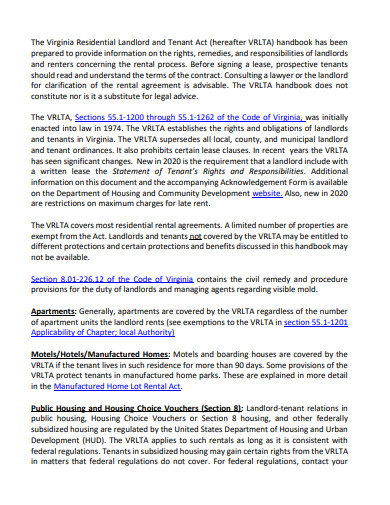4+ Residential Landlord Tenant Agreement Examples
Looking for a place to rent is never easy. Especially when there are a lot of criteria that are asked of tenants from landlords. The reason for the criteria is for landlords to pick out whom they want to rent their places to. But still, it goes without saying it can be really difficult to look for a good place to live for a while. Tenants may often go through agreements with landlords as a form of a deal. This article will discuss landlord-tenant agreements, the lease, the rental agreement, tenancy, and the information to put in the agreement.
Definition of Residential
Defining residential, is a place where you live, a place where you work or study. Relating to a house where people live. A house or an apartment where people rent and stay for a fixed period of time.
Definition of Agreement
Agreement means a display of mutual agreement by two or more individuals to one another. A meeting to agree on something legally binding. In this case a rent agreement, a lease agreement. An act of agreeing or accepting something. An agreement can be in the form of a legal letter or through two people agreeing with witnesses.
Definition of Landlord
A person or an individual who owns a house, an apartment, a land which they rent or lease to an individual or a business. Landlords hold the right to take back the land that the tenant has rented if the tenant has broken some rules of the agreement.
Definition of Tenant
A tenant is a person who rents out land or property from another person. To do this the person who wishes to rent must sign an agreement from the landlord. Even if they do not own the property, they do have some rights over the land, room or building they are leasing.
Tips for Residential Agreement
This is it, you are now applying for the leasing. Before you jump to the prospect of signing, why don’t you check out some of these tips and what information you should be putting on the agreement.
- Ask your landlord questions: For you to be able to understand the lease and your agreement, ask your landlord questions. This is also to certify that you and your landlord are on the same page when it comes to agreements. In addition to that, this is to avoid misunderstandings between both parties.
- Read the agreement carefully: If you have no other questions or have no questions in general, before writing down the information needed, read the agreement very carefully. Check for some legal things as well as for the information about the place you are renting. The information about the place is usually found on the agreement in bold. If it is not found, go back to the first tip.
- Fill out the basic details: Once you have read everything in the agreement, fill out the basic information. Your name for starters, your contact information and the address of the place you are renting.
- Make the agreement clear: Make your agreement clear enough. List down the things you are paying for and the things that may be free to your landlord. By doing so, your landlord must give you a checklist of the things that are a part of your payment like the room, the food, the water, and electricity. What is free may be the furniture.
- Sign the agreement: To make the agreement more binding, you and your landlord must sign it. Also ask for a copy of your agreement. You have the right to ask as this is also part of your legal rights as a tenant.
1. Residential Landlord-Tenant Rental Agreement
2. Basic Residential Landlord-Tenancy Agreement
3. Residential Landlord-Tenant Agreement Example
4. Residential Lease Landlord-Tenant Agreement
5. Residential Landlord and Tenant Act Agreement
FAQs
What is tenancy?
Tenancy means the holding of a house. Temporary possession or occupancy of the house that belongs to someone else. The period of which the tenant (the lessee), occupancy of the house, the room or the land.
Why is having an agreement between the tenant and the landlord so important?
In case of any issues regarding the terms, the lease and the period of time, the agreement is there to show both parties the answers.
Is it okay if the landlord doesn’t sign the agreement?
No. It is not okay if the landlord refuses to sign the agreement. As the landlord must also have a copy of the legal and binding document. Both parties have to sign the agreement. As both parties have agreed to the terms, the rules, and the certain details being asked through the agreement. This document is legally binding. You and your landlord must sign. Failure to do this, will make the agreement void.
Is it still my right to ask for a copy of the agreement?
Yes. It is highly encouraged that you ask for your copy of the agreement.
Any person who has gone through renting places would know that agreements are as important to you as they are to a landlord. This is a piece of document that is both legally binding and useful. This protects both parties from any issues and misunderstandings. Asking for a copy of the agreement is also the tenant’s rights. If one of the parties ever breaks the agreement, whatever the consequence of breaking, both parties must follow. As long as you read the papers, the information is clear and correct, you will have no issues or worries about renting a place. Lastly, always ask your landlord questions. It may seem odd to be asking them about the place you are renting, but it is actually very useful. As this will show that you and the lessor are on the same page about certain and if not very private things.



